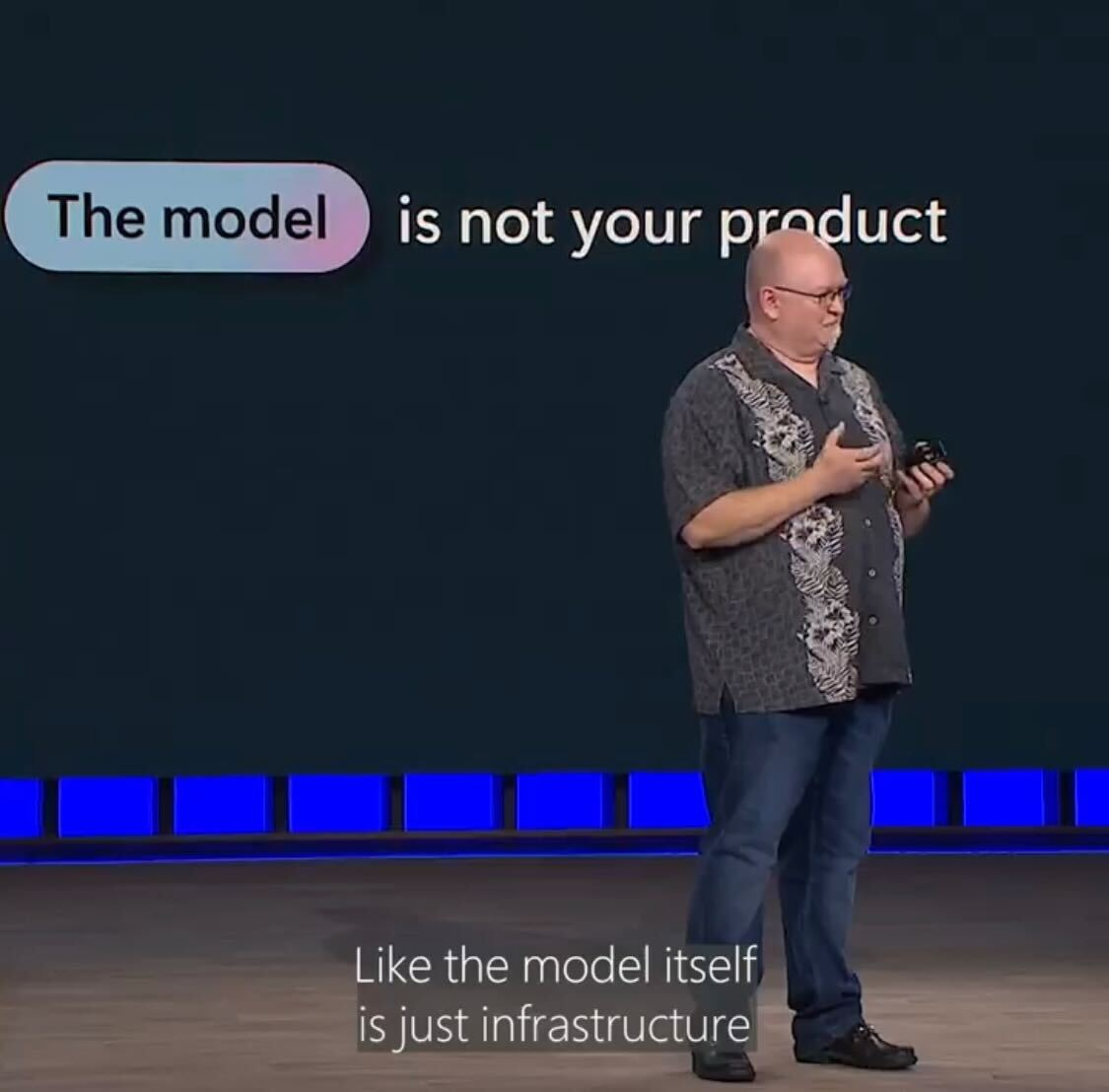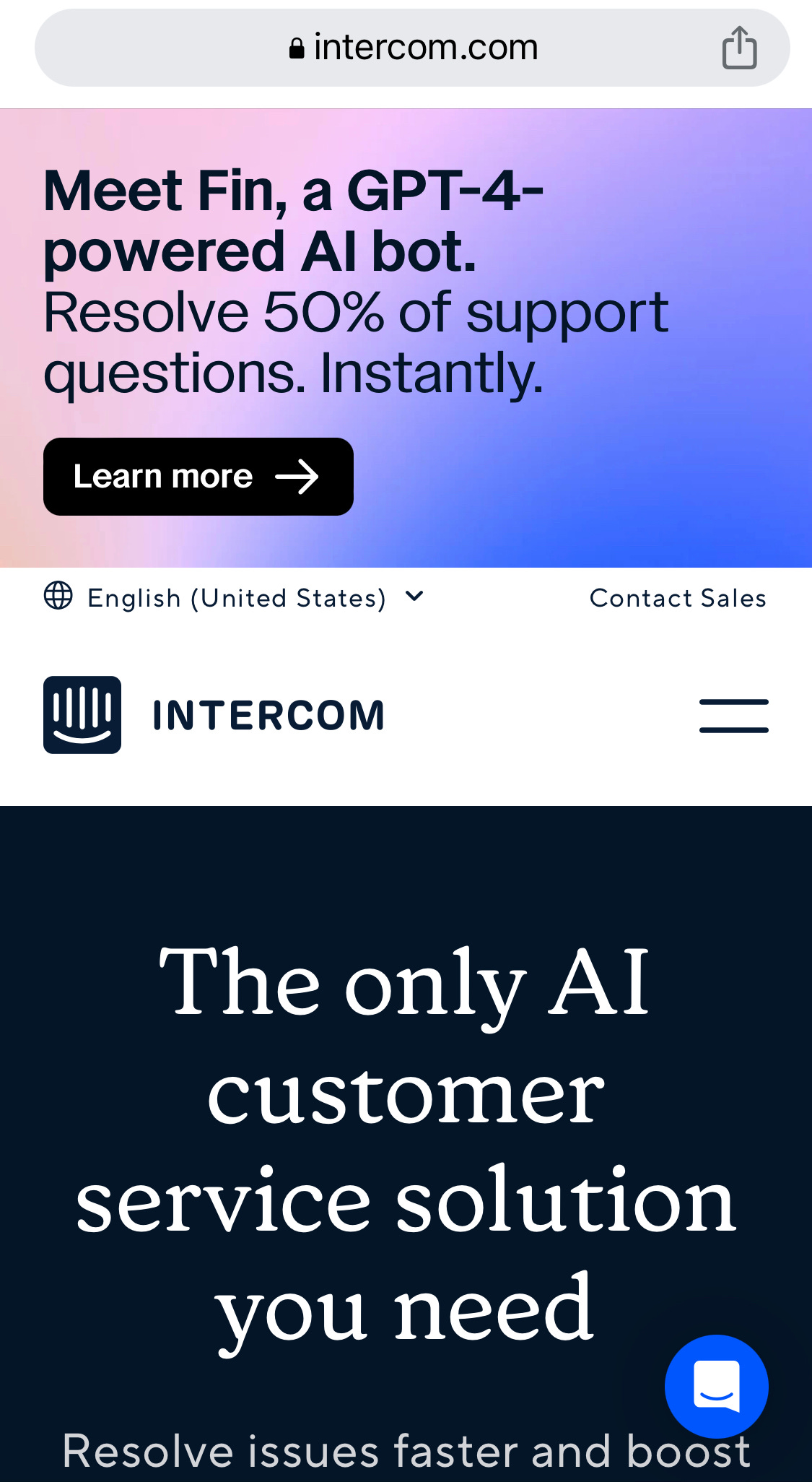AI is not the product
Examples of AI product releases from ClickUp, LivePerson, Intercom, C3 AI, and CrowdStrike
Since OpenAI launched ChatGPT in late 2022, other tech companies have scrambled to launch their own artificial intelligence products. It’s an anxious time in tech where if you’re not making an AI-related product announcement it feels like you’re behind.
There’s an undercurrent of hype and anxiety in the headlines and storytelling about these new products, which focus mostly on AI itself (and their named/personified chatbots) instead of the new value it creates for customers.
Examples below:
LivePerson
ClickUp
C3 AI
Intercom
CrowdStrike
Spellbook
Many of the companies quickly launching AI products this year must do so as a matter of survival e.g. if Grammarly, a writing and grammar app, took too long to launch a generative AI product it would risk losing market share quickly to another company that did. (It launched GrammarlyGo in March.)
Others want to capitalize on the short-term opportunity for some attention and be able to say “we do AI too.” (ClickUp)
Then there are companies that have used AI for years, but now feel the pressure to make their existing AI capabilities sound fresh and/or launch a new AI chatbot or other functionality. (C3 AI, CrowdStrike)
AI is not really a product that most of these companies offer; their products are customer support tech (LivePerson), content creation (Jasper), etc. etc. that use AI to power or supplement their products.
The marketing behind these products should focus on the value they actually create: happier customers, faster support response times, improved SEO rankings, 10x volume of content creation, more trustworthy data, etc. instead of the fact that it’s a new AI product.
To illustrate this in a different way, as a product marketer I could launch a new product with messaging such as, “our new API-first platform for marketers to create content…” Marketers couldn’t care less if it’s API-first or however the platform was built, even if API-first is different or better than competitors, so the product probably shouldn’t be marketed that way.
A company that makes plant-based “sausage” could do well by highlighting that it’s a meat alternative that tastes great (value), instead of marketing the fact that its ingredients are highly processed and refined vegetables and additives (product). Not quite as appetizing.
This is marketing 101, but the recent advancements and disruptiveness of ChatGPT and AI seem to have made marketers forget this.

AI is new, it’s impressive, it’s changing the world. But when there’s a problem to solve most people/customers don’t care about AI specifically. They just care about solving the problem and finding the best path to get there, AI or not.
A different perspective
AI is now being compared to the internet, the industrial revolution, and other economic/cultural shifts in history. It has gone mainstream. One might argue that tech companies should make AI the focus of product announcements, as a chance to align themselves with this movement, to signal to customers that they are innovative, they are current, that there is a significant difference in how the product works and the possibilities it creates.
Even if you buy into that argument, it feels shortsighted. AI is likely to be ubiquitous in how technology is built in the future, and if everything is described as “AI” it doesn’t really help describe or differentiate you at all.
It’s easy for me to judge companies, and it’s hard to get this stuff right, especially when you have execs or customers asking about your AI strategy. I’ve captured some examples below of recent AI product launches as inspiration to learn from.
LivePerson
LivePerson is effectively a multi-channel customer service platform, but seems to have lost itself a bit in trying to own enterprise AI.
The company recently launched a suite of new AI features and has gone so big on AI that you’d be forgiven for not being able to figure out what they actually do.
To give LivePerson some credit, their explainer video does a great job of illustrating what a modern, AI-powered customer support interaction could look like and be helpful for the agent and the customer.
ClickUp
ClickUp does a lot of really interesting creative marketing work, but their launch of ClickUp AI left me even more confused about what the company actually does.
Their launch in February struck me as an example of a company that needed to have a quick response to the new developments in AI but did so by launching a pretty shallow set of features–mostly embedded prompt and summarization functionality. But they finished 2022 with $150M in revenue so they’re obviously doing something right.
C3 AI
C3 AI went all in on “enterprise AI” as its category years ago. In the past I found C3 AI an interesting case study in using category/messaging that is too abstract, but also wildly differentiated–if no one calls themselves “Enterprise AI” then it’s something you can own yourself.
But now as AI becomes more ubiquitous, I think the uniqueness has disappeared and now risks losing its identity in a sea of thousands of other “AI” players in the market.
Intercom
Intercom recently launched Fin, its own AI chatbot which stands out to me because they message very clearly and quantitatively the massive ways in which it will improve customer support: “Resolve 50% of support questions. Instantly.”
However, I already find the chatbot name/character exercise a bit tired. “Fin?” I get that there’s Siri and Alexa etc. but how many named chatbots do we have to be introduced to before the practice is dropped. I digress.
CrowdStrike
CrowdStrike is a leading cybersecurity company that just announced what is effectively a chatbot, and yes it also has a name. Now I’m not in the cybersecurity space, but a quick scan of the headline below and full product announcement makes the news feel underwhelming and out of place.
I can’t imagine the complexity of the CrowdStrike platform and how it protects their customers, but dropping a chatbot named Charlotte into it and celebrating their AI capabilities feels degrading to what might otherwise be perceived as a powerful platform.
Spellbook
Spellbook is brand new tech solution for legal teams (spun out of a company called Rally) and their niche use case for generative AI is super interesting. For an industry that runs on billable hours, “draft contracts 3x faster” sounds compelling.
Thanks for reading! AI is obviously a hot topic right now; as a marketer its fascinating to see how different companies are handling this unique moment in history. I’ve also spent time with ChatGPT, MidJourney, etc. to explore if and how my team at Crunchtime should use such tools to improve our marketing work. So far we haven’t incorporated it in any meaningful way for content creation or other tasks, but I continue to tinker and explore. Reach out if you’re interested in chatting, would love to hear how you’re thinking about it.
– Pete












